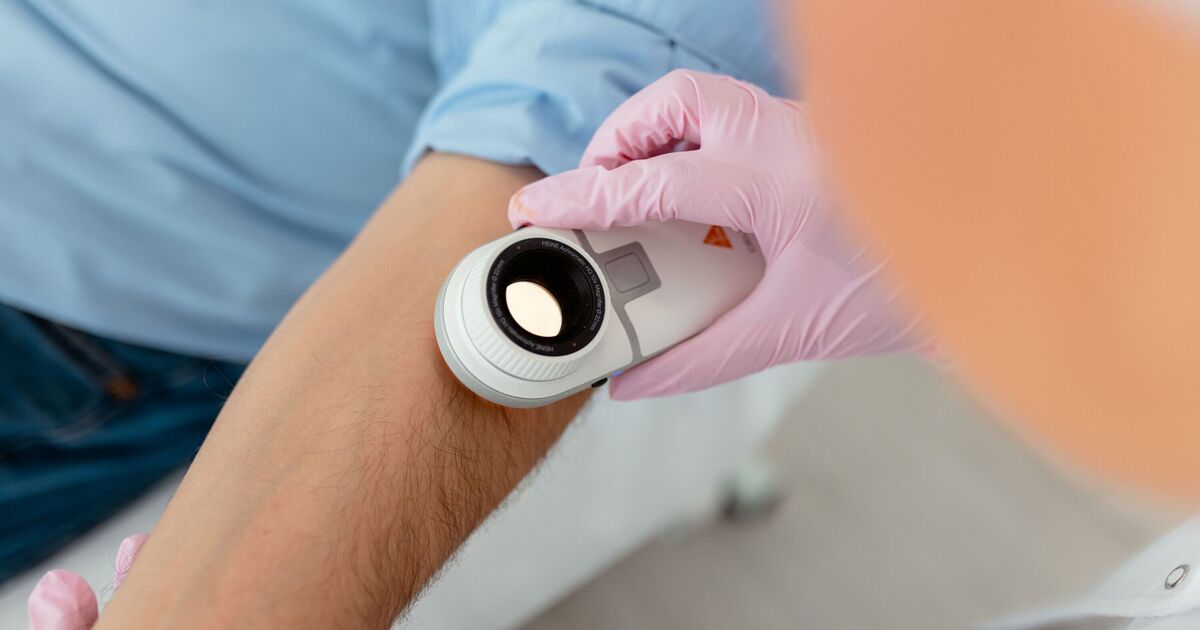Scientists have discovered a protein that acts like a “suit of armour” for skin cancer cells in a breakthrough that could lead to new treatments. More than 21,300 cases of melanoma are expected to be diagnosed this year — a 22% increase from 2023 — and the disease claims 2,300 lives annually. Normally, cells are vulnerable to a process called oxidative stress, a kind of internal “rusting” that damages and destroys them.
Researchers at The Institute for Cancer Research (ICR) in London grew melanoma tumours in a lab to try and understand how aggressive cells are protected against oxidative stress. Their work revealed that the cancer cells produced high amounts of a protein called SLC7A11, which appeared to act like armour, controlling their cytoskeleton which gives shape and structure to cells.
When tumour cells were treated with drugs that inhibit the protein, they became less round and less able to grow and invade. And after 72 hours, almost 75 per cent of the cells had died.
The researchers hope such drugs could be developed and trialled for the treatment of melanoma.
Study leader Professor Victoria Sanz-Moreno, an expert in cancer cell and metastasis biology at The ICR, said: “Our study has helped us to better understand how some cancer cells protect themselves from the stresses they encounter as they attempt to spread around the body.
“This could lead to new ways to identify and treat aggressive melanoma. High levels of the SLC7A11 protein seems to be a warning sign that a tumour is likely to spread.
“We have shown in the lab that targeting this protein leaves the cancer cells exposed and vulnerable to oxidative stress, blocking their ability to invade other tissues.
“If we take away the melanoma cells’ shield and armour, we could stop cancer in its tracks.”
Oxidative stress can also be counteracted with antioxidants, which have become popular over-the-counter supplements.
The team found that cancer cells treated with the antioxidant glutathione became rounder — the more aggressive shape.
They urged caution for patients with melanoma when taking any antioxidant supplements in larger doses than recommended by health organisations.
Prof Sanz-Moreno added: “Even if you remove the shield and armour, antioxidants can boost the aggressive nature of melanoma cells. We therefore urge caution when taking these over-the-counter supplements.”
ICR chief executive Professor Kristian Helin said: “We know that cancer is most deadly once it has spread. Finding ways to stop cancer from spreading around the body is crucial to give patients more time living well. I hope this research opens the door to new lines of attack against melanoma in the future.”
The study received funding from a number of charities including Cancer Research UK. Dr Dani Edmunds, research information manager at Cancer Research UK, said: “It’s promising to see that melanoma skin cancer could be stopped from spreading by stripping away its defences.
“While this is early-stage research, future clinical trials could help us understand how this approach works in the body and how best we can use it to save and improve lives.
“This research also highlights the complex relationship between antioxidant supplements and cancer. We know that eating a healthy balanced diet can help to reduce the risk of cancer.
“If you have been diagnosed with cancer, we strongly advise talking to your doctor before taking any over-the-counter health supplements.”
You can find out more about the work of The ICR’s work on skin cancer here.
